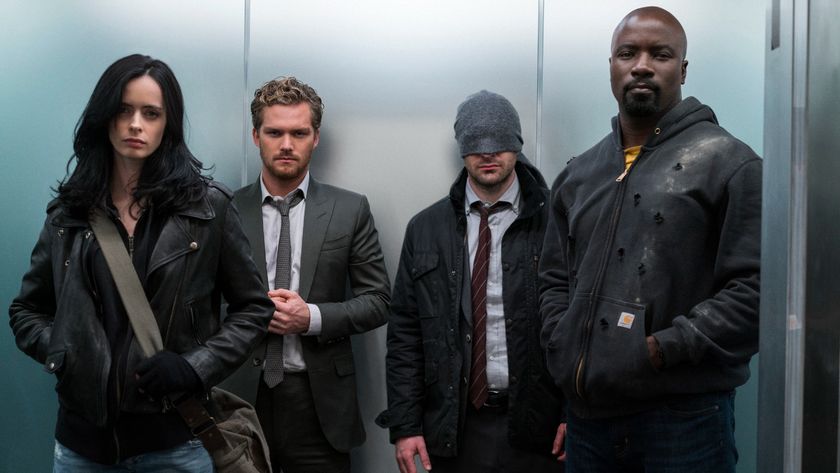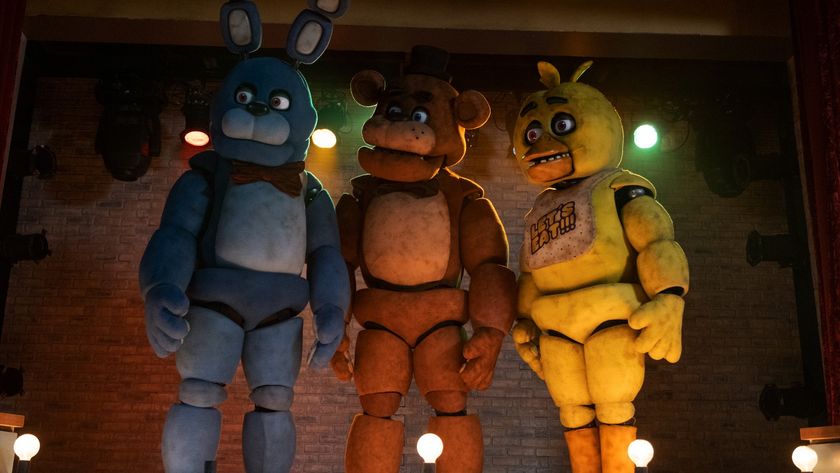Why you can trust 12DOVE
Chapter 1: "He adored London. He idolised it out of all proportion." No, make that: "He romanticised it out of all proportion." Hmm... Doesn't sound quite right, does it?
Unsurprisingly, Woody Allen's latest doesn't begin with a Manhattan-esque ode to the city. In fact, the move from his beloved NYC to Blighty (to secure a little Euro and Beeb funding) proves barely an issue at all - primarily because Allen's selective view of London (all art galleries, landmarks and upmarket streets) is pretty much identical to his selective view of the Big Apple.
The more significant departure comes not with relocation, but writing. For the first time since perhaps Deconstructing Harry, Allen hasn't left the typewriter with a not-quite-rounded, intermittently diverting screenplay. Instead we get an ambitious, occasionally ingenious attempt at a kind of Crime And Punishment, with Allen contemplating the roles of luck and morality in everyday life (a point hammered home by an early scene showing our protagonist reading Dostoyevsky). So, a serious Allen then, rather than a funny one. But, thanks to some strong female performances, one imbued with both sensitivity and sensuality.
Things don't start too promisingly, though. The artsy intro - tennis ball in slow motion, La Traviata, earnest voiceover - skims perilously close to pretension ripe for ridicule - and the subsequent adult themes, expressed in somewhat clunky dialogue by a young, Gap-ad shiny cast, don't help much either.
But slowly, surely, the Dawson's Creek verbosity gives way to arresting drama. Chris may be a little sketchy in the details - more of a cipher than a fully-drawn character - but his dilemma still compels: should he choose the easy life with the affectionate Chloe and a job at Daddy's company that pays wads of cash, or give his new-found affluence up for a passionate, cash-lite existence with struggling actress Nola?
One look at Johansson in a clinging white party dress would make up most guys' minds, but it's a credit to Mortimer that her insecure, affectionate Chloe offers a genuine alternative. And, as the Hewett family insidiously draw Chris in, you can't help but squirm - wondering what the hell he's going to do and how it can possibly not end in tears.
The cleverly engineered conclusion keeps you on edge, smartly riffing on the opening shot and somehow surviving exposition-heavy closing dialogue. Johansson is ace, slowly growing into a role that could have come across as slightly bratty but instead is full of vulnerability. And Allen, if not on top form, is at least displaying a welcome ambition to stretch himself. The change of scenery appears to be doing him good.
By turns clunky, compelling and ingenious, this is one of Woody Allen's bravest and boldest efforts for some time.
The Total Film team are made up of the finest minds in all of film journalism. They are: Editor Jane Crowther, Deputy Editor Matt Maytum, Reviews Ed Matthew Leyland, News Editor Jordan Farley, and Online Editor Emily Murray. Expect exclusive news, reviews, features, and more from the team behind the smarter movie magazine.

Days after dev layoffs, NetEase confirms Marvel Rivals has surpassed 40 million players, celebrates the company "delivering groundbreaking gaming experiences"

Marvel TV boss isn't ruling out other Defenders re-joining the MCU after Daredevil: Born Again: "It is certainly something that is creatively extremely exciting"

Five Nights at Freddy's 2 release date, cast, plot, trailer, and everything we know about the upcoming horror sequel
Most Popular



